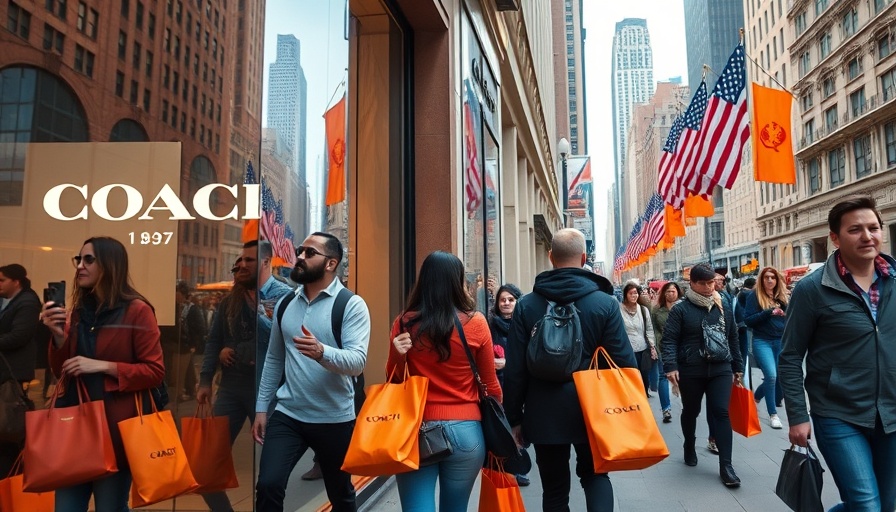
Are Tariffs Dimming Tapestry's Shine?
Shares of Tapestry Inc., the parent company of well-known brands like Coach and Kate Spade, saw a significant decline of nearly 16% following a recent earnings report. The drop, which left the stock at $95.69, was mainly attributed to anticipated profit losses linked to tariffs set to cost the company an estimated $160 million in the fiscal year. Despite these concerning figures, Chief Financial Officer Scott Roe maintained that consumer demand remains robust, indicating a potential silver lining amid the turmoil.
The Impact of Tariffs on Business Strategy
The current economic landscape has posed challenges for many retailers. Tapestry’s decision to forecast fiscal earnings per share of $5.30 to $5.45—below analyst expectations of $5.49—highlights the strain tariffs are placing on profitability. According to Roe, the ending of the de minimis rule, which allowed lower-value goods to enter the U.S. duty-free, is a significant factor contributing to these headwinds. This is a part of a broader shift observed across various industries, where companies are adapting to increased costs by potentially relocating manufacturing and adjusting pricing strategies.
Future Sales Outlook
Looking ahead, Tapestry predicts a low single-digit growth in revenue to approximately $7.2 billion, excluding the brand Stuart Weitzman, which is set to be sold. This cautious optimism appears to be part of a larger strategy employed by retailers to navigate the complexities of today’s marketplace, as seen in the industry-wide adjustments made in light of tariff implementation. Companies are not only raising prices but also exploring alternative manufacturing locations, a trend likely to expand as global trade dynamics evolve.
A Resilient Consumer Base
Despite the looming challenges presented by tariffs, Tapestry remains optimistic about its growth trajectory. The company has indicated that customer demand has not only held steady but may have even accelerated in the current quarter. This reflects a potential resilience among consumers that could bode well for the future of retail brands navigating through uncertain economic waters.
What This Means for Investors and Lenders
For business lenders, banks, and credit providers, the implications of Tapestry’s situation carry weight. Retailers adapting swiftly to market shifts can be an indicator of a healthy retail ecosystem, which could provide lending opportunities in sectors focused on consumer goods. Understanding these dynamics will be crucial as financial institutions assess risk and opportunity in credit offerings.
 Add Row
Add Row  Add
Add 




Write A Comment